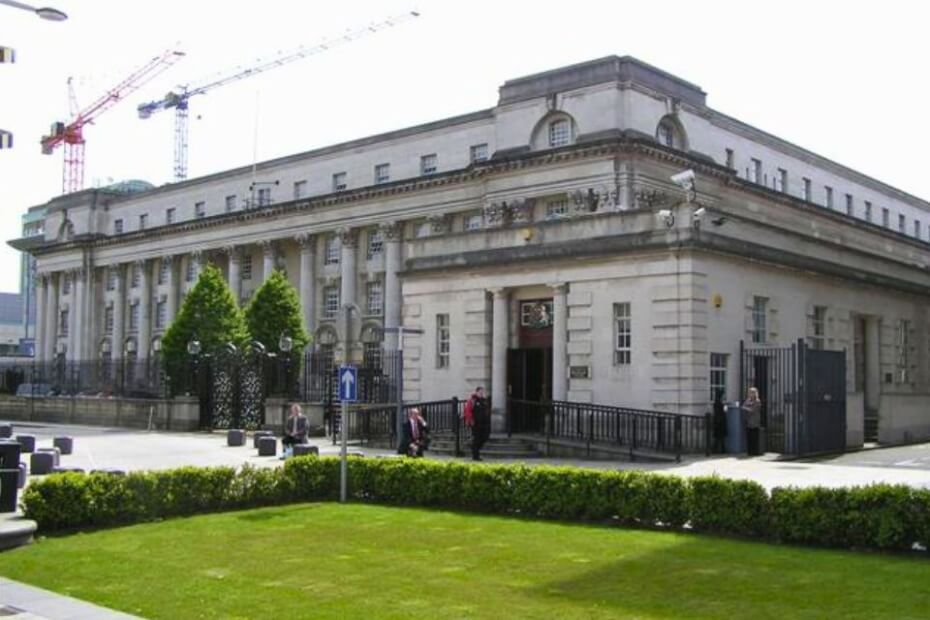
A Northern Ireland judge ruled that the controversial Rwanda Law of the United Kingdom (UK) should not apply to the region.
High Court Justice Michael Humphreys declared part of the Rwanda Law incompatible with the European Convention on Human Rights, reported The Guardian.
Typically, this is a sanction by a UK court that would send legislation back to Parliament to be reworked.
The Northern Ireland judge also said it violates the Windsor Framework, jointly agreed upon by the UK and the European Union (EU) post-Brexit.
The Windsor Framework specifies that the rights provisions contained in Northern Ireland’s Good Friday Peace Agreement of 1998 cannot be reduced.
The Good Friday Agreement was a political agreement between the UK and Irish governments that ended 30 years of conflict in Northern Ireland, known as the Troubles.
However, Hunphrey’s ruling found that provisions in the Rwanda Law led to a “diminution of rights” in Northern Ireland.
This includes the rights of residents who claim asylum in the region.
The ruling was for two cases: one brought by the Northern Ireland Human Rights Commission and the other by a 16-year-old asylum seeker from Iran residing in Northern Ireland.
Human rights lawyers say the Northern Ireland judge’s ruling could prompt discrimination challenges. This is because it treats asylum seekers in different parts of the UK differently.
UK government will appeal the ruling
UK Prime Minister Rishi Sunak said “judgment changes nothing” about the country’s plans to send illegal migrants to Rwanda.
It also said the Northern Ireland judge’s ruling had no implications for the lawfulness of the new law.
“The commitments in the Good Friday Agreement should be interpreted as they were always intended and not expanded to cover issues like illegal migration,” he said.
The UK government is continuing to gather illegal migrants for deportation to Rwanda, set in the coming weeks.
“Nothing will distract us from that or delivering to the timetable I set out. We must start the flights to stop the boats,” Sunak said.
The Rwanda Law is vital to Sunak’s plan to combat illegal migration. It seeks to stop migrants crossing the English Channel to come to the UK.
On the other hand, Sinead Marmion, the lawyer representing the teenage boy, welcomed the ruling.
“The Good Friday Agreement has always been a beacon of human rights protections and hope,” she said.
Marmion added that the ruling ensured those rights apply to the whole community – including asylum seekers.”
She said it sends a message to the UK government: “Not only will asylum seekers be welcome in Northern Ireland, but they will also be legally protected.”
Asylum seekers currently held and set for the first flight to Rwanda came to the UK before the new law took effect.
The Northern Ireland judge’s ruling will not directly impact them.
However, future asylum seekers facing forced removal to Rwanda might use Monday’s ruling to challenge their removals.
Road to UK’s Rwanda Act
Many migrants crossing the English Channel to come to the UK have claimed asylum. The government has granted this to many in the past.
However, the UK government believes that migrants arriving in the UK illegally are not refugees.
This is because they didn’t seek asylum in the first safe country they arrived in, such as France.
In 2022, the UK made a deal with Rwanda to send stowaways and boat migrants to the East African country.
Should these illegal migrants seek asylum in the UK, the government will assess their claim while they stay in Rwanda.
If their asylum claims are approved, these migrants can stay there.
However, the European Court of Human Rights challenged the UK government’s attempt to deport individuals to Rwanda.
The case was decided by the UK Supreme Court in 2023.
It ruled that Rwanda was unsafe as it could send migrants back to the home countries where they had fled.
To address this, the UK and Rwanda signed an internationally binding treaty to strengthen the protection of migrants.
It ensured that Rwanda would not send migrants deported from the UK back to their home country or any other unsafe country.
The treaty also introduced a strengthened end-to-end asylum system, including a Monitoring Committee to ensure compliance.
In April 2024, the UK Parliament passed the bill, and a Royal Ascent enacted it into law.
The Home Office swiftly sent enforcement teams to detain the first batch of migrants for deportation to Rwanda.
It has also prepared to send the first migrants to the East African country. Flights are scheduled in nine to eleven weeks.
This includes increasing the capacity of detention facilities and training more caseworkers to assess asylum claims quickly.

